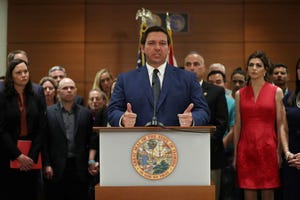COP28 wraps up without call for meat reduction
Legislative Watch: Strategies for methane reduction; bill to allow whole milk in schools passes House; major supermarket merger under fire.
December 15, 2023

At the conclusion of the annual Conference of Parties meeting on climate policy, participants released a 21-page report serving as the first-ever “stocktake” from the group. According to the United Nations, the document “is a process for countries and stakeholders to see where they’re collectively making progress towards meeting the goals of the Paris Climate Change Agreement – and where they’re not.” The stocktake is intended to be updated every five years.
Many U.S. livestock and food groups feared the stocktake would follow anti-meat activists’ demands and call for a phasing out of animal protein in the name of climate change. Instead, the document only calls on parties to pursue “climate-resilient food and agricultural production and supply and distribution of food, as well as increasing sustainable and regenerative production and equitable access to adequate food and nutrition for all.”
At the COP28 meeting in Dubai, U.S. Agriculture Secretary Tom Vilsack was asked about calls for reducing meat protein consumption. He said, “I don't hear much about that. I did hear about the important role that strategies for methane reduction could play in making the current livestock industry more sustainable.”
Bill to allow whole milk in schools passes House
In an overwhelming bipartisan vote, on Wednesday the House of Representatives voted to allow 2% and whole milk in school lunches for the first time since 2012. The Whole Milk for Healthy Kids Act, sponsored by House Agriculture Committee Chairman Rep. Glenn “GT” Thompson (R-Penn.), garnered 330 votes, with only 99 opposed.
Proponents of the bill say these higher-fat versions are much more popular with schoolchildren than the skim varieties currently allowed. They argue that consumption of any type of milk is good for students’ health. Those opposed believe the bill would insert politics into a decision that should be determined solely by dietary science.
After the House vote, Sen. Roger Marshall (R-Kan.) called up the bill and requested that the Senate pass it by unanimous consent. Senate Agriculture Committee Chair Debbie Stabenow (D-Mich.) objected to Marshall’s motion, saying it would set an “unfortunate precedent” to pass legislation overriding nutritional scientists for particular foods. Dairy industry groups vowed to continue pursuing the legislation in the Senate, with possible eyes on the farm bill as a vehicle for passage.
Major supermarket merger under fire
The merger of two of the nation’s leading supermarket chains is drawing criticism from several far-left members of Congress. Kroger agreed to purchase Albertsons for $24.6 billion in October 2022, but the deal is still awaiting approval from regulators.
This week, a letter criticizing the merger was sent to Federal Trade Commission Chair Lina Khan. The letter was authored by Sen. Elizabeth Warren (D-Mass.) and signed by Sens. Mazie Hirono (D-Hawaii), Bernie Sanders (D-Vt.), Cory Booker (D-N.J.), and Reps. Summer Lee (D-Penn.) and Alexandria Ocasio-Cortez (D-N.Y.). Seven Secretaries of State have also asked the FTC to intervene and block the merger.
The letter states, “A Kroger-Albertsons merger would net the five largest food retail companies control of 55% of all grocery sales. The newly merged entity could use its dominant position to further control and ultimately raise consumer prices. … The merger would result in a duopoly with Walmart, with the two corporations controlling more than 70% of the grocery market in over 160 cities across the country.”
Considering the concerns raised, the members of Congress asked the FTC to “use its authority under the Clayton Act, the Sherman Act and the Federal Trade Commission Act to prevent the companies from merging.” Kroger has said it plans to complete the merger in early 2024.
About the Author(s)
You May Also Like





